Jamaica, 4 Things I Never Expected
There are obviously many differences, culturally and otherwise, from country to country and Jamaica is no different.
Encountering and striving to understand these divergent ways of life in Jamaica is part of the fascinating experience of travel, isn’t it? It only makes sense that things are going to be different when we travel to new places and, in fact, wouldn’t it be boring if every place and every person were the same?
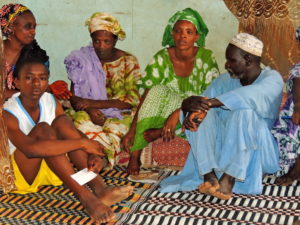 I was astonished, for example, to meet men living with multiple wives in Senegal.
I was astonished, for example, to meet men living with multiple wives in Senegal.
Yes, I knew it happened, but I was always curious as to how they make it “work out” based on the paradigm I was raised with, where one man marries one woman. I asked a million questions and slowly came to realize that many of the women felt just like I did…they didn’t really want to share their husbands or houses with other women, no matter how much the men tried to make me believe that it was simply “accepted” and everyone was “happy.”
In Southern Italy, I was equally shocked to find every store in town closed in the middle of the day for the “riposo,” the Italian version of the Mexican “siesta.”
I wondered how in the world they could stay in business if they were closed down for a chunk of the day! As I settled into my life and routine while living there, however, I discovered that because every Italian KNOWS the businesses take that midday break to rest and start the evening meals, and because it’s most likely that their own workplace does the same thing, it’s not a problem…unless you are an American, who expects things to be “just like home.”
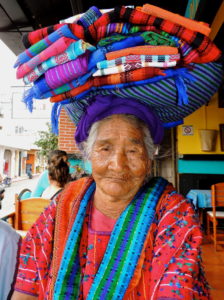 Likewise, I was pleasantly surprised to see the strong family units in Guatemala.
Likewise, I was pleasantly surprised to see the strong family units in Guatemala.
It was common to see many generations living under the same (small) roof in the countryside there. The elderly remain productive until they die or become completely incapacitated, often seen collecting sticks for firewood or carrying water pails along roadsides, in an effort to help the family. Children frequently get pulled out of school at young ages there to share in the workload as crops in the fields are harvested or when help is needed with the family business. Although I’m certain there are some family members who felt stifled by this way of life, the young people I spoke with had extreme respect for their parents, families and the sacrifices they each made for the welfare of the family unit.
Integrating into everyday life in Jamaica has been just as illuminating as the above examples. Each day brings with it new ideas and nuances that I hadn’t discovered previously. I want to clarify that I’m not necessarily condemning nor condoning any of these aspects of life. I would also like to make it clear that my observations and statements heretofore about “Jamaicans” are in reference to the people I associate with daily in MY small-town life. They do NOT necessarily reflect Jamaicans as a whole nor will they speak to the character or lifestyle of “all” Jamaicans, so please don’t beat up on me because I say something that doesn’t fit your personal paradigm.
 1. I never expected to find Jamaicans who don’t swim or at least venture into the ocean.
1. I never expected to find Jamaicans who don’t swim or at least venture into the ocean.
I’ve lost track of the number of Jamaican friends who have told me that they don’t swim and/or are afraid of the water. They tell me that it’s no big deal and that few of their friends’ swim either. All I can think is “Hello. You live on an island…a piece of land that is surrounded by water. How can you survive without knowing how to swim?” Somehow, in my mind, everyone living on a tropical island, often living a stone’s throw away from the ocean, would learn to swim, if only for safety reasons. Not so.
2. The next wakeup call was regarding the fact that many Jamaicans do not really think of dogs as “pets.”
Stray dogs roam many parts of the island, often looking quite pitiful as they dig through garbage or barely survive  on meager handouts. They are rarely given vaccinations, flea treatments, etc and are almost never spayed or neutered. Most female dogs give birth to unwanted puppies year after year. While many people here view dogs as a necessary evil, a valuable tool against criminals that might venture into the yard, they do not interact with them the way American’s do. They aren’t part of the family the way they are in many other countries. They are often left to wander during the day, sleeping in the yard or on a verandah at night to keep an eye out for intruders. It is also very rare to see a dog allowed to venture into the house, either.
on meager handouts. They are rarely given vaccinations, flea treatments, etc and are almost never spayed or neutered. Most female dogs give birth to unwanted puppies year after year. While many people here view dogs as a necessary evil, a valuable tool against criminals that might venture into the yard, they do not interact with them the way American’s do. They aren’t part of the family the way they are in many other countries. They are often left to wander during the day, sleeping in the yard or on a verandah at night to keep an eye out for intruders. It is also very rare to see a dog allowed to venture into the house, either.
Most dogs are fed whatever leftovers are tossed their way, surviving on foods that I was taught would kill a dog. Chicken bones, onions, and potatoes become a tasty treat when that’s all that’s available. Other folks, those who place a little value on their dogs, will boil chicken and rice for the animal. I honestly can’t blame Jamaican’s either, because the price of commercial dog food would compare to feeding an American dog filet mignon day after day. It’s insanely expensive.
 3. This “guard dog status” in most homes fosters the belief that dogs are meant for attacking, causing people to live in fear of them.
3. This “guard dog status” in most homes fosters the belief that dogs are meant for attacking, causing people to live in fear of them.
I’ve watched as, day after day, people walk through my gate and meet my five-month-old puppy who has come to greet and sniff them. Very few of them “like” dogs and many are just plain petrified. They either become paralyzed, asking me to “call the dog off” or they fling their hands in the air, the perfect signal to my puppy that they want to “play.” This action causes my dog to start jumping on them, thus reinforcing their fear of dogs. It’s a natural reaction for both the visitor and the dog so it’s hard to get upset with anyone.
4. Of course, where you have dogs, you have barking.
I think this is the single most difficult hurdle for me to jump since I began my transition into Jamaican life. We just don’t see eye-to-eye on the purpose or necessity of barking dogs. I recall the first few nights I spent in the house that I’m currently leasing. I laid awake for hours because the neighbors have three dogs that take turns barking ALL NIGHT LONG. Just as one might wind down and I would start to doze off, the next one would go off like a siren. I seriously considering checking into a hotel, but bought a loud fan instead and found that it was enough to mask the noise. Now, many months later, I don’t even hear the dogs unless I concentrate to see if they are barking.
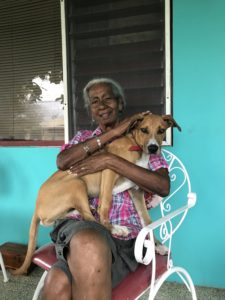 Meanwhile, in MY yard, we have my puppy, Marley. During a visit to the beach, when he was only a few months old, he was attacked by one of the roaming “beach” dogs. Luckily, I had him on a leash and was able to pull him up to safety but he has been terrified of other dogs since then. A little older now, he goes ballistic when a dog passes by outside our fence, chasing them along and barking like he is going to tear right through to get to them. At times, he has gotten so upset that I feared he might have a heart attack from the stress and have dragged him into the house to calm him down.
Meanwhile, in MY yard, we have my puppy, Marley. During a visit to the beach, when he was only a few months old, he was attacked by one of the roaming “beach” dogs. Luckily, I had him on a leash and was able to pull him up to safety but he has been terrified of other dogs since then. A little older now, he goes ballistic when a dog passes by outside our fence, chasing them along and barking like he is going to tear right through to get to them. At times, he has gotten so upset that I feared he might have a heart attack from the stress and have dragged him into the house to calm him down.
My Jamaican friends and neighbors chastise me, whenever I try to distract my dog from the barking routine.
They tell me that a barking dog is a GOOD dog, and say “Oh, him bad!” (Which means they think he’s a great dog.) They consider a quiet dog to be useless as a guard dog. In my opinion, a quiet dog can bite just as hard as a loud dog. While a barking dog may give a would-be intruder cause to think again before entering my yard, a dog that quietly sneaks up on them may leave a more lasting impression…hopefully, right on their backside!
 In comparison, back home in New Hampshire, if my dog makes peep after 10 PM, the cops show up at my house. If she barks for more than a few minutes during the day, my neighbor comes down in person, banging on my door and yelling obscenities at me. Mind you, every house on my street, a dirt road in the middle of nowhere, is on five acres of land, so we aren’t talking about close-by, “in-town” houses either.
In comparison, back home in New Hampshire, if my dog makes peep after 10 PM, the cops show up at my house. If she barks for more than a few minutes during the day, my neighbor comes down in person, banging on my door and yelling obscenities at me. Mind you, every house on my street, a dirt road in the middle of nowhere, is on five acres of land, so we aren’t talking about close-by, “in-town” houses either.
It’s not that I really disagree with the way Jamaicans feel about barking. It’s more that I suffer from Post-Traumatic Stress Disorder when it comes to the subject after the many verbal attacks I’ve endured at home. My blood pressure goes up, my heart pounds out of my chest and I’m instantly called to action when my dog barks.
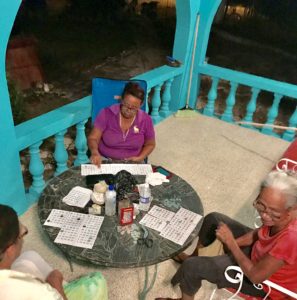 Hey, I’m a work in progress.
Hey, I’m a work in progress.
In learning to “be Jamaican,” I’m slowly discovering that I AM capable of just letting the dog bark it out and even let him chase a dog who had snuck into my yard while his master was on my verandah playing bingo. As I listen in horror at the snarling, barking and snapping, and watch the two dogs disappear behind my house. The other dog’s owner calmly went on playing her game as if nothing had happened. Sometimes, I had to chuckle to myself and admit that I’m just too uptight about my dog bothering anyone. Do they make a pill for that?
I’m learning about and observing new aspects of Jamaican life and Jamaicans every day. I doubt I’ll ever “master” the subject!
It’s a culture so vastly different to my own that I can’t help but to try to figure it out. Most of it, I admire, and other facets leave me scratching my head…or, as they say here, “Shakin mi head.” Whatever the case, I’m still loving it here in my new homeland.
To learn about other cultural differences, feel free to read about Jamaican men here.
Feel free to drop a comment below. If you’d like to keep up with our adventure, please take a minute to subscribe to our blog in the upper right corner. We won’t load up your inbox or sell your info. We will, however, keep you updated. Blessings to you!
Disclosure: We may be paid a small commission for purchases made from any affiliate links in this post. It will not raise your price or cause any changes for you. We only offer links to products and services that we’ve personally tried and loved
Jamaican Coco Bread

Enter your email and get my favorite Jamaican Coco Bread recipe FREE along with our email newsletter.
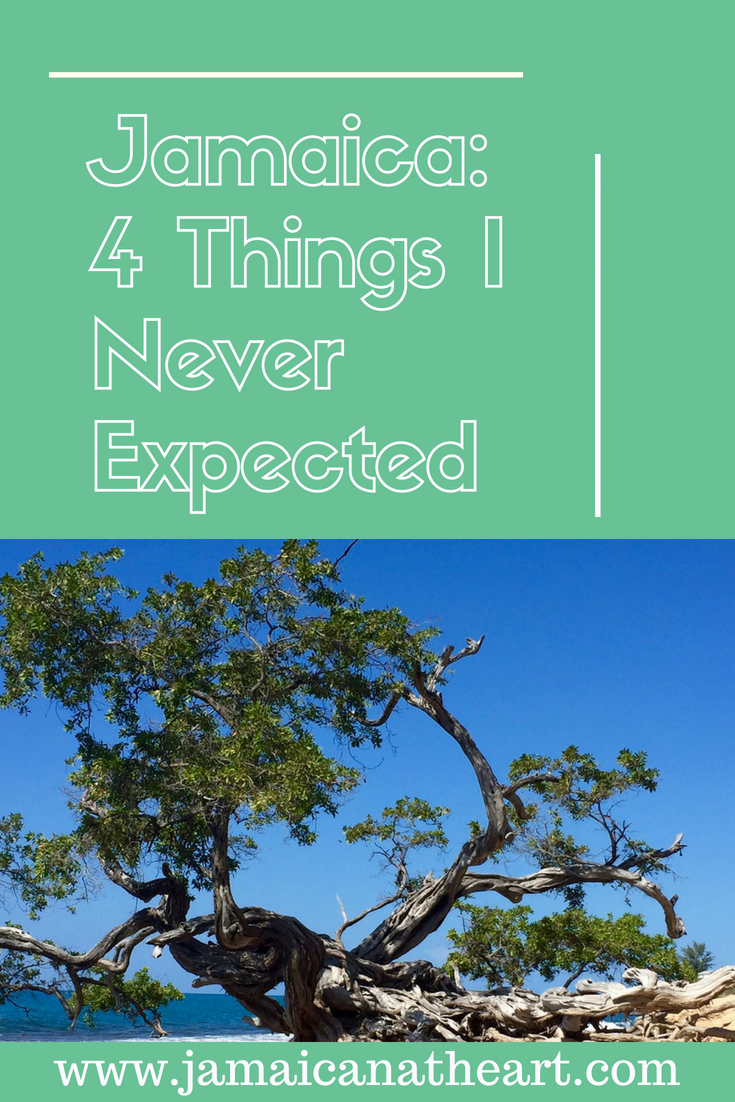
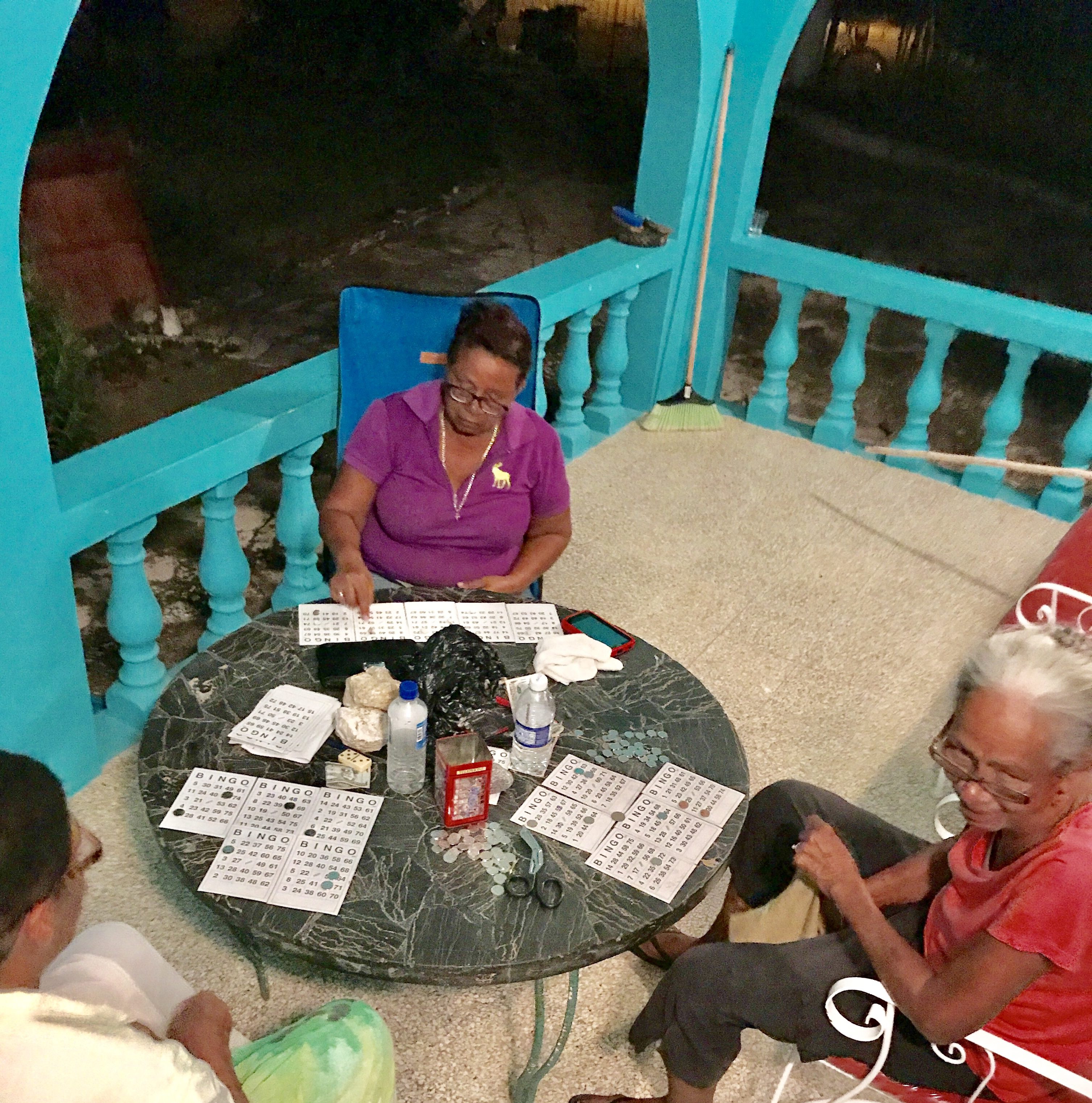
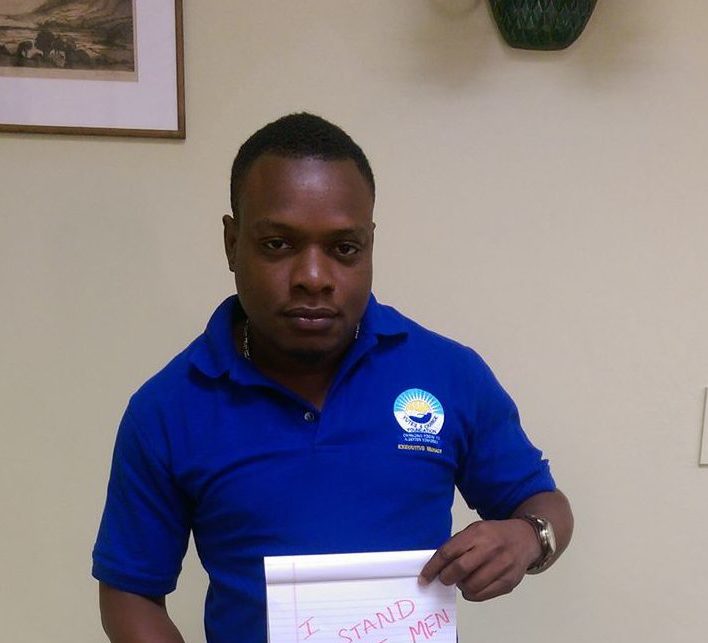
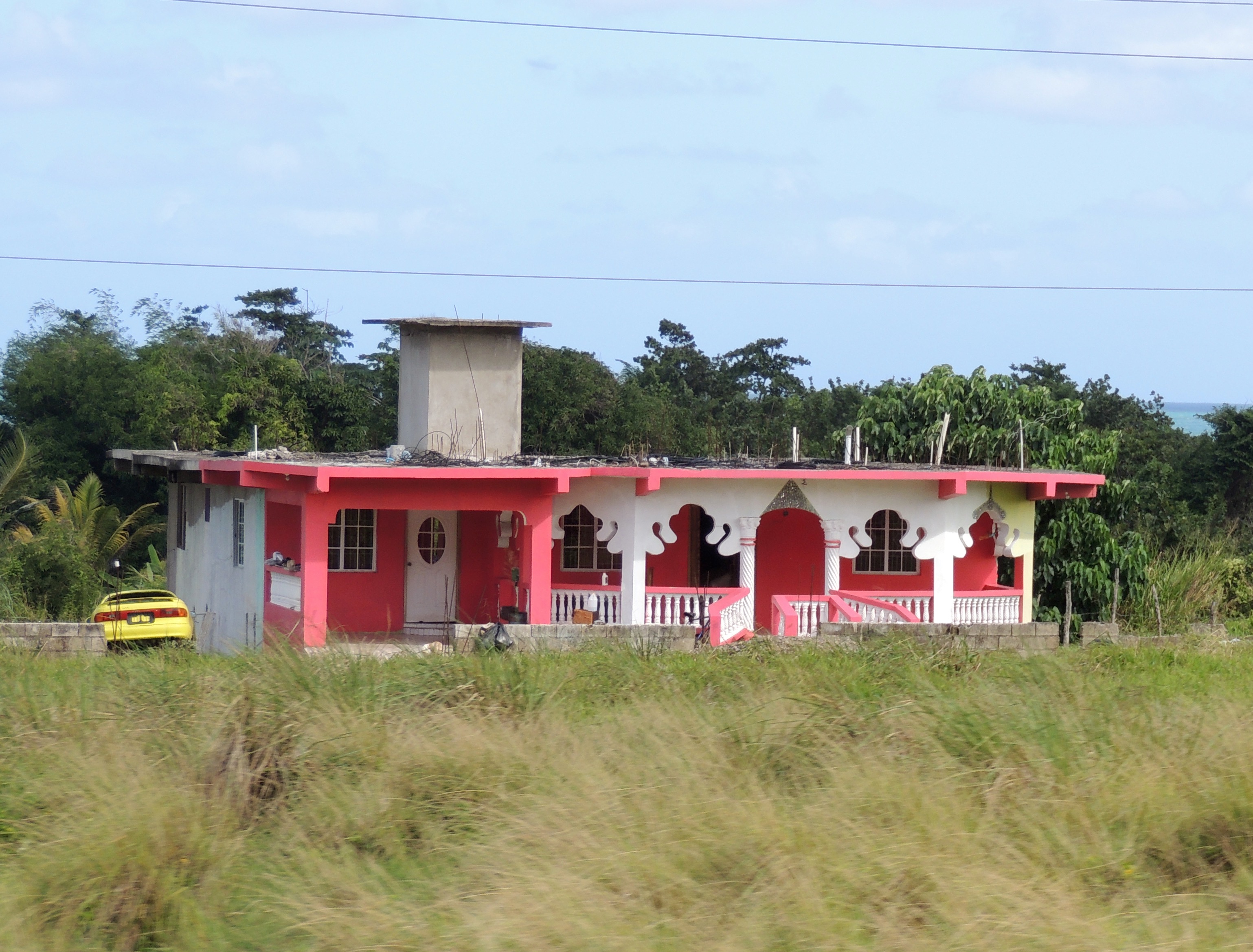
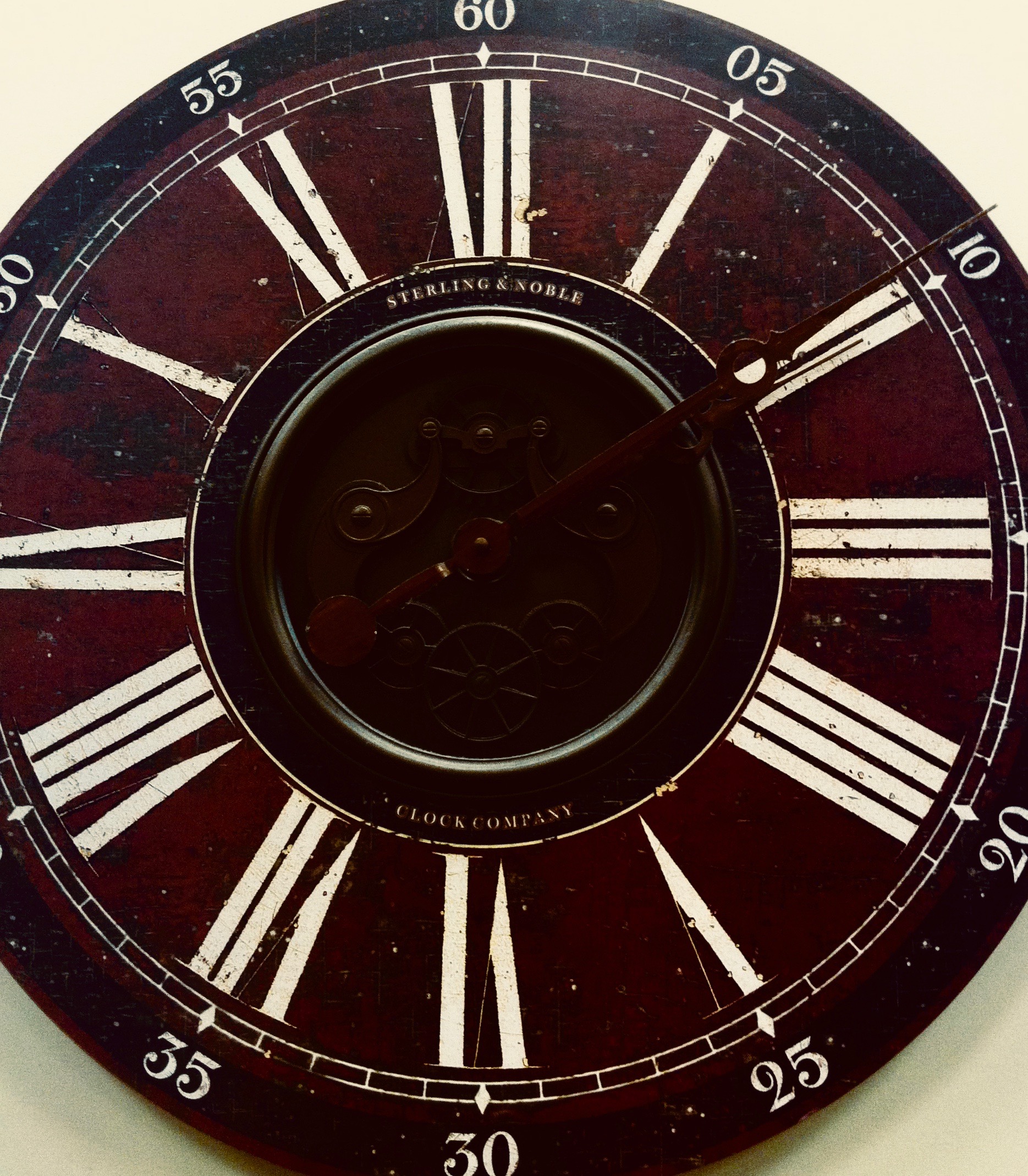

3 Comments
Clover Batts
Ah, you’re learning…yes we are culturally different from those other places you know. Some aspects of our culture are comparable to the broader West Indian beliefs but each island has its own unique quality. So glad the adjustments are on track…keep writing
Sharon Ebert
Many times there is only one explanation “it’s Jamaica yah nuh”
But we wouldn’t want to live anywhere else!
Jamerican
Sharon, that’s soooo true! Ha ha!